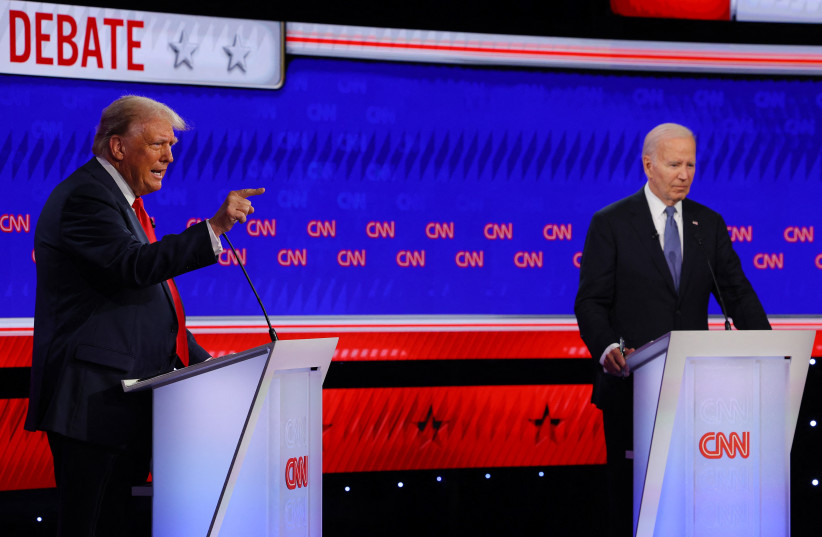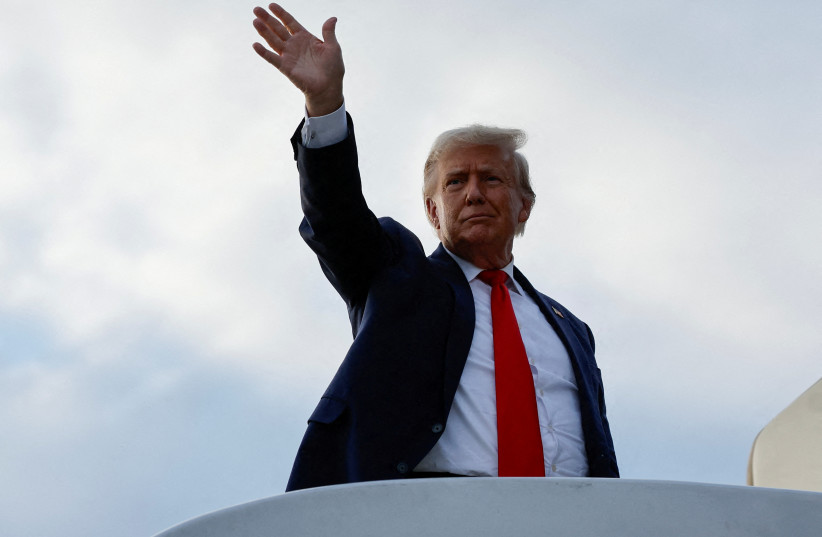While the first US presidential debate of the 2024 race dwelled little on foreign policy, analysts say Joe Biden's shaky performance will have America's allies steeling for Donald Trump's return.
Biden's supporters had hoped the debate would erase worries that he was too old to serve, but several lawmakers, analysts, and investors also said the event had boosted Trump.
"Mr. Trump didn't win, but Mr. Biden might have imploded," said Kunihiko Miyake, a former Japanese diplomat and now research director at the Canon Institute for Global Studies, a think tank.
"Unlike eight years ago, we are much more prepared than other European and Asian allies. Still, Mr. Trump is unpredictable."
Tensions are on the rise from financial, social pressure imposed by Trump administration
For Japan and South Korea, among the closest US allies in Asia, relations with Trump's administration were sometimes strained by his demands for more payments towards military assistance and trade tensions.

"The biggest question for Japan would be whether Trump will truly value and maintain the security alliance," said Takashi Kawakami, a professor at Japan's Takushoku University in Tokyo.
Peter Lee, research fellow at the Asan Institute for Policy Studies in Seoul, said the debate had put into "much more stark relief" the possibility of a second Trump administration. Lee said he expected Trump to be "very tough" a second time in pressuring allies to up their defense spending.
Trump also started a tariff war with China, the world's second-largest economy, and has floated 60% or higher tariffs on all Chinese goods if he wins the November 5 election.
Lee Jae-il, an analyst at Eugene Investment & Securities, said overseas firms dependent on US markets, such as automakers, will also be wary of the heightened possibility of Trump's return given the "myriad" of tariff-related policies he imposed during his previous term.
"Trump, like a trade war maniac, might not just target China but impose tariffs against other countries under American exceptionalism," added Stephen Lee, chief economist at Meritz Securities in Seoul.
"The mood has changed considerably after the debate, and the general view is that if you weren’t preparing for a Trump 2.0, then that is the smart play and the smart move now."
Peter Dean, professor at the United States Studies Centre in Sydney
In Europe, Trump's criticisms of the North Atlantic Treaty Organisation and demands that other members pay more dominated his previous administration. His skepticism towards NATO is causing further anxiety this time, as Russia's war in Ukraine has brought conflict to the bloc's doorstep.
During the debate, Trump accused Biden of not standing up to China on trade. He also said China's Xi Jinping, North Korea's Kim Jong Un, and Russia's Vladimir Putin "don't respect" Biden and that he was driving the country "into World War Three."
Biden retorted that Trump's tariff proposals would result in higher costs for American consumers and that he "cuddles up" to Kim and Putin.

Several Australian officials and experts attended a workshop titled "Trump 2.0" in Sydney as the debate aired.
"The overwhelming feeling from today is that it was a disaster for Biden," said Peter Dean, a professor at the United States Studies Centre in Sydney who was at the workshop.
"The mood has changed considerably after the debate, and the general view is that if you weren’t preparing for a Trump 2.0, then that is the smart play and the smart move now."
Keir Starmer, the leader of Britain's Labour party and the frontrunner in an election due next week, was asked on BBC radio after the debate if he was concerned about Biden.
"I've got enough on my hands with our own election campaign at the moment...The relationship between the UK and the US is strong, historic, and obviously, it's above the individuals," he said.
